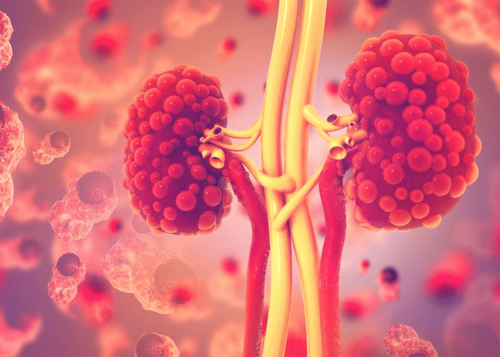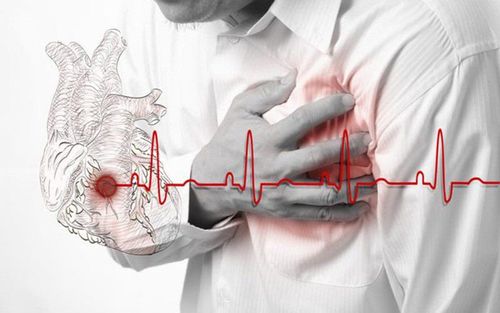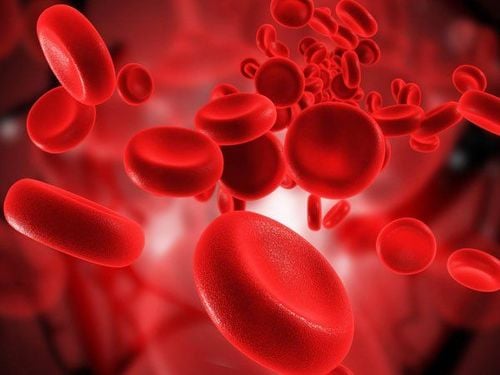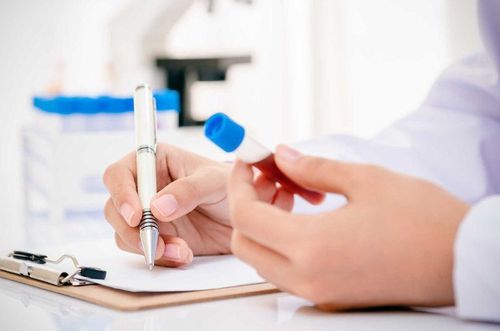This is an automatically translated article.
The article is professionally consulted by doctors of the laboratory, Vinmec Da Nang General Hospital.A general health check is one of the habits that help us live a long, healthy life. General health examination is understood as a comprehensive medical examination program for all parts and organs of the body to screen for diseases. However, in fact, many people still do not fully understand the meaning of some tests, especially blood tests and urine tests, which pathologies are abnormal indicators pointing to? Let's answer these questions together.
1. Meaning of blood test
A blood test is a procedure in which a small amount of blood is drawn from a vein, capillary (and in rare cases, an artery) for testing. After having the results, you will know in general your health situation, detect diseases early if you have them. And here are the important meanings that this test gives you, you should know:Complete blood count test: To determine the number of red blood cells, white blood cells and other blood cells. In addition, this test also shows the properties of blood cells such as: size, amount of hemoglobin, ... so that doctors can detect early blood diseases such as anemia, infection, blood cancer. ,...This test helps to evaluate anemia, certain infections, and clotting disorders caused by a lack of platelets and/or clotting factors. Blood group testing: Usually tested before blood transfusion, before blood donation and during pregnancy,... Memorizing blood group for each individual is necessary in emergency cases requiring blood transfusion. right. This test helps determine the blood group needed for blood transfusion, diagnose anemia, hemolysis,... Blood chemistry test: Helps evaluate the function of organs in the body such as: liver function - bile (liver enzymes, bilirubin, protein,...), kidney function (urea, creatinine,...), blood sugar status (blood glucose, HbA1c), blood fat status (triglyceride, cholesterol),... Blood clotting tests: Platelet count, prothrombin time, APTT,... to assess blood clotting and indirectly contribute to liver function assessment. Blood clotting tests to help assess blood clotting Immuno-microbiological tests: Immuno-microbiological tests help detect and rule out diseases such as hepatitis, HIV infection, suggestive tests Tumor factors: CEA, CA 125, CA 19-9, CA 15-3, thyroid status,...
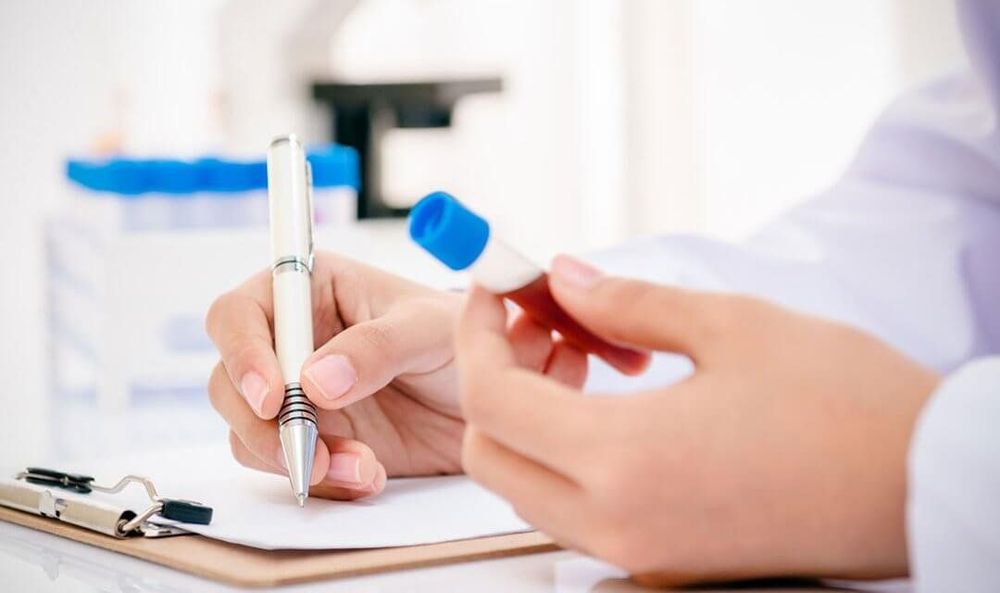
Xét nghiệm máu rất có ý nghĩa trong gói khám sức khỏe tổng quát.
2. What do abnormal blood test results suggest?
The following are normal blood test numbers and suggestions for abnormal values:GLU (Glucose) : Blood sugar readings. Normal value: 3.9 - 6.4 mmol/l. If the reading is less than 3.9 mmol/l, it is called hypoglycaemia, suggesting that the patient is already taking antidiabetic medications, less commonly some other hypoglycemic drugs, serious illness. poor or organ failure, a reaction to carbohydrates (in susceptible individuals), an insulin-producing tumor in the pancreas, and certain types of weight loss surgery.
If the reading is above 6.4 mmol/l, it is called hyperglycemia, suggesting diabetes.
SGOT , SGPT: Group of liver enzyme index, normal range: SGOT: 9 – 48 U/l; SGPT: 5 – 49 U/l. Elevated liver enzymes suggest liver diseases such as: acute viral hepatitis (A, B, C, D,...), heavy alcohol consumption, liver failure, obstructive jaundice and cases of malaria , biliary tract disease, iron overload, autoimmune hepatitis and some other diseases. WBC (White Blood Cell): The number of white blood cells in a volume of blood. Normal range: 4,300 - 10,800 cells/mm3 (equivalent to 4.3 - 10.8 x 109 cells/l). Elevated white blood cells suggest acute or chronic infections. RBC (Red Blood Cell): The number of red blood cells in a volume of blood Normal range: 4.2 - 5.9 million cells/cm3. Elevated red blood cells suggest polycythemia vera, and decreased red blood cells suggest acute or chronic anemia. HB or HBG (Hemoglobin): The amount of hemoglobin in a volume of blood. Normal range: Male: 13 - 18 g/dl and Female: 12 - 16 g/l. A decreased hemoglobin number suggests anemia. Hematocrit (HCT): The ratio of the volume of red blood cells to the volume of whole blood. Normal range: Male: 45 - 52%; Female: 37 - 48%. A decrease in HCT suggests anemia. PLT (Platelet): The number of platelets in a volume of blood. Normal range: 150,000 - 400,000/cm3. Platelets <150,000/cm3 are thrombocytopenia. LYM (Lymphocyte): Lymphocyte, normal range: 20 - 25%. An increase in lymphocytes suggests chronic infections such as tuberculosis, cancer,... NEUT (Neutrophil): The rate of neutrophils, normal range: 60 - 66%. An increase in NEU indicates an acute infection such as pneumonia,...
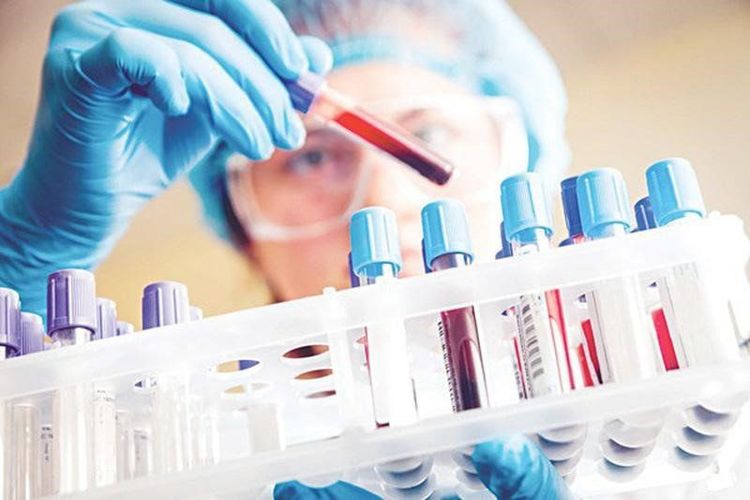
Xét nghiệm máu rất quan trọng trong việc chẩn đoán bệnh.
3. What is the meaning of urine test?
Urine is produced by the kidneys. The kidneys filter waste out of the blood, help regulate the amount of water in the body and preserve protein; electrolytes and other compounds that the body can reuse. Substances that are not needed are eliminated by the kidneys in the urine.Urine is generally pale yellow and relatively transparent; But for each person's urination, the color, quantity, concentration and content of substances in the urine will be slightly different due to different components. Urine tests include glucose, protein, bilirubin, red blood cells, white blood cells, crystals, and bacteria. They are present maybe because:
There are high levels in the blood and the body reacts by removing the excess in the urine. Have kidney disease. Urinary tract infections .
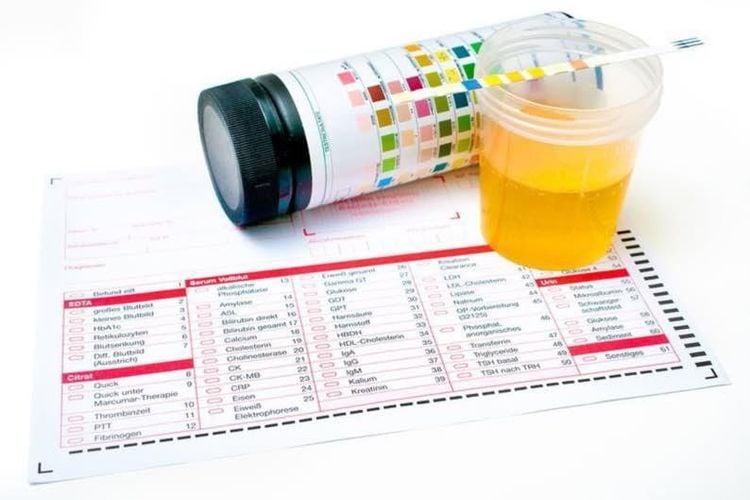
Xét nghiệm nước tiểu rất có ý nghĩa trong gói khám sức khỏe tổng quát.
4. Abnormal urinalysis results suggest what pathology?
Many substances are usually only found in trace amounts in the urine, so higher or lower levels indicate a possible association with a medical condition. The following substances can be tested with a rapid urine test:pH value - measures the acidity of urine. Normal values depend on the diet, ranging from 5 to 7. In which, values below 5 (too acidic environment) suggest a risk of body acidosis (complications of diabetes, diarrhea, etc.) bleeding ,...) and a value above 7 (not acidic enough) suggests infections. Protein - not commonly found in urine, allowable index: Trace (trace, negligible): 7.5 - 20mg/dL or 0.075 - 0.2 g/L. If this index is increased, it can be a sign of kidney disease, blood in the urine or a urinary tract infection. Increased protein in the urine is also a sign of preeclampsia in pregnancy. Sugar - glucose is not often found in the urine, the allowable index: 50 - 100 mg/dL or 2.5 - 5 mmol/L. Glucose is elevated in the urine when the renal threshold is reduced, with renal tubular disease, diabetes, pancreatitis, dietary glucosuria, or in pregnant women. Nitrite - not commonly found in urine, allowable index: 0.05 - 0.1 mg/dL. If an increase suggests a urinary tract infection, especially E.Coli Ketone - a metabolic product, usually not found in the urine, the allowable index: 2.5 - 5 mg/dL or 0.25 - 0.5 mmol/ L. Increased urine ketones is common in patients with uncontrolled diabetes, low-carbohydrate diets, alcohol abuse, and long-term fasting. Sometimes ketones appear in low levels in pregnant women. Bilirubin - breakdown product of hemoglobin, not often found in urine, allowable index: 0.4 - 0.8 mg/dL or 6.8 - 13.6 mmol/L. If increased, it is suggestive of hepatobiliary diseases such as: cirrhosis, hepatitis, gallstones,... Urobilinogen - a breakdown product of bilirubin, not often found in urine, permissible index: 0.2 - 1.0 mg/dL or 3.5 - 17 mmol/L. If the increase is suggestive of hepatobiliary diseases such as: cirrhosis, hepatitis, gallstones,... Red blood cells - not often found in the urine, the allowable index: 0.015 - 0.062 mg/dL or 5 - 10 Ery/ UL. Positive results suggest acute nephritis, glomerulonephritis, nephritis, polycystic kidney disease, urinary tract infection, urinary tract infection, cirrhosis, etc. White blood cells - usually not found in urine , Permissible index: 10 - 25 Leu/UL, if increased suggest urinary infection.
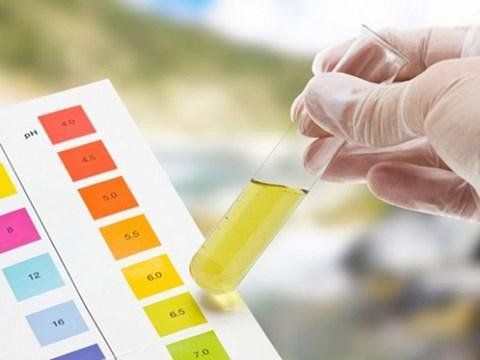
Xét nghiệm nước tiểu một phần gợi ý các bệnh lý thường gặp.
In short, if the test results are abnormal, you need to see a doctor. As with all tests, the results of urine and blood tests are two basic tests but are important as early clues to the disease you are suffering from. You should take the time to go to Vinmec International General Hospital to check your health in the most comprehensive way.
Please dial HOTLINE for more information or register for an appointment HERE. Download MyVinmec app to make appointments faster and to manage your bookings easily.






